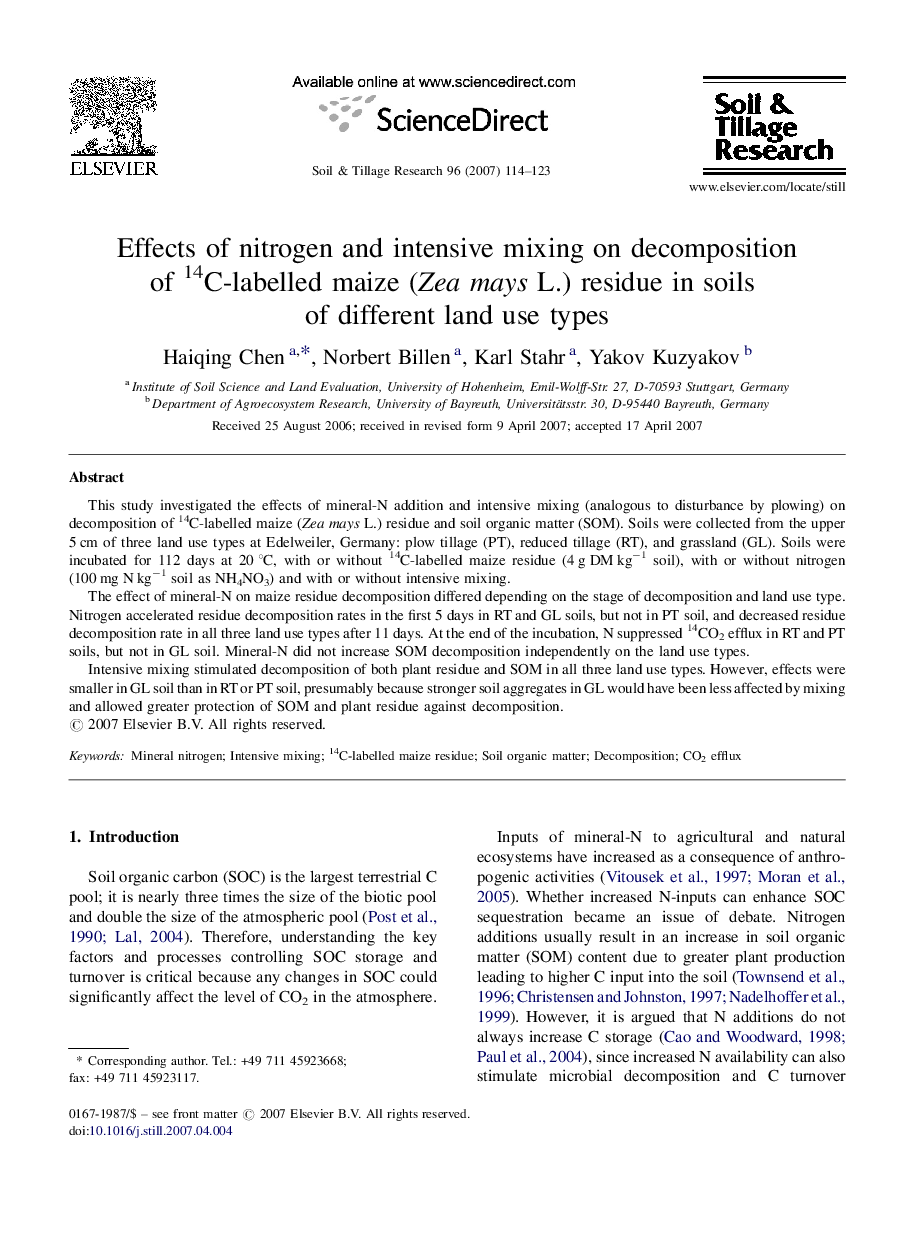| Article ID | Journal | Published Year | Pages | File Type |
|---|---|---|---|---|
| 306540 | Soil and Tillage Research | 2007 | 10 Pages |
This study investigated the effects of mineral-N addition and intensive mixing (analogous to disturbance by plowing) on decomposition of 14C-labelled maize (Zea mays L.) residue and soil organic matter (SOM). Soils were collected from the upper 5 cm of three land use types at Edelweiler, Germany: plow tillage (PT), reduced tillage (RT), and grassland (GL). Soils were incubated for 112 days at 20 °C, with or without 14C-labelled maize residue (4 g DM kg−1 soil), with or without nitrogen (100 mg N kg−1 soil as NH4NO3) and with or without intensive mixing.The effect of mineral-N on maize residue decomposition differed depending on the stage of decomposition and land use type. Nitrogen accelerated residue decomposition rates in the first 5 days in RT and GL soils, but not in PT soil, and decreased residue decomposition rate in all three land use types after 11 days. At the end of the incubation, N suppressed 14CO2 efflux in RT and PT soils, but not in GL soil. Mineral-N did not increase SOM decomposition independently on the land use types.Intensive mixing stimulated decomposition of both plant residue and SOM in all three land use types. However, effects were smaller in GL soil than in RT or PT soil, presumably because stronger soil aggregates in GL would have been less affected by mixing and allowed greater protection of SOM and plant residue against decomposition.
